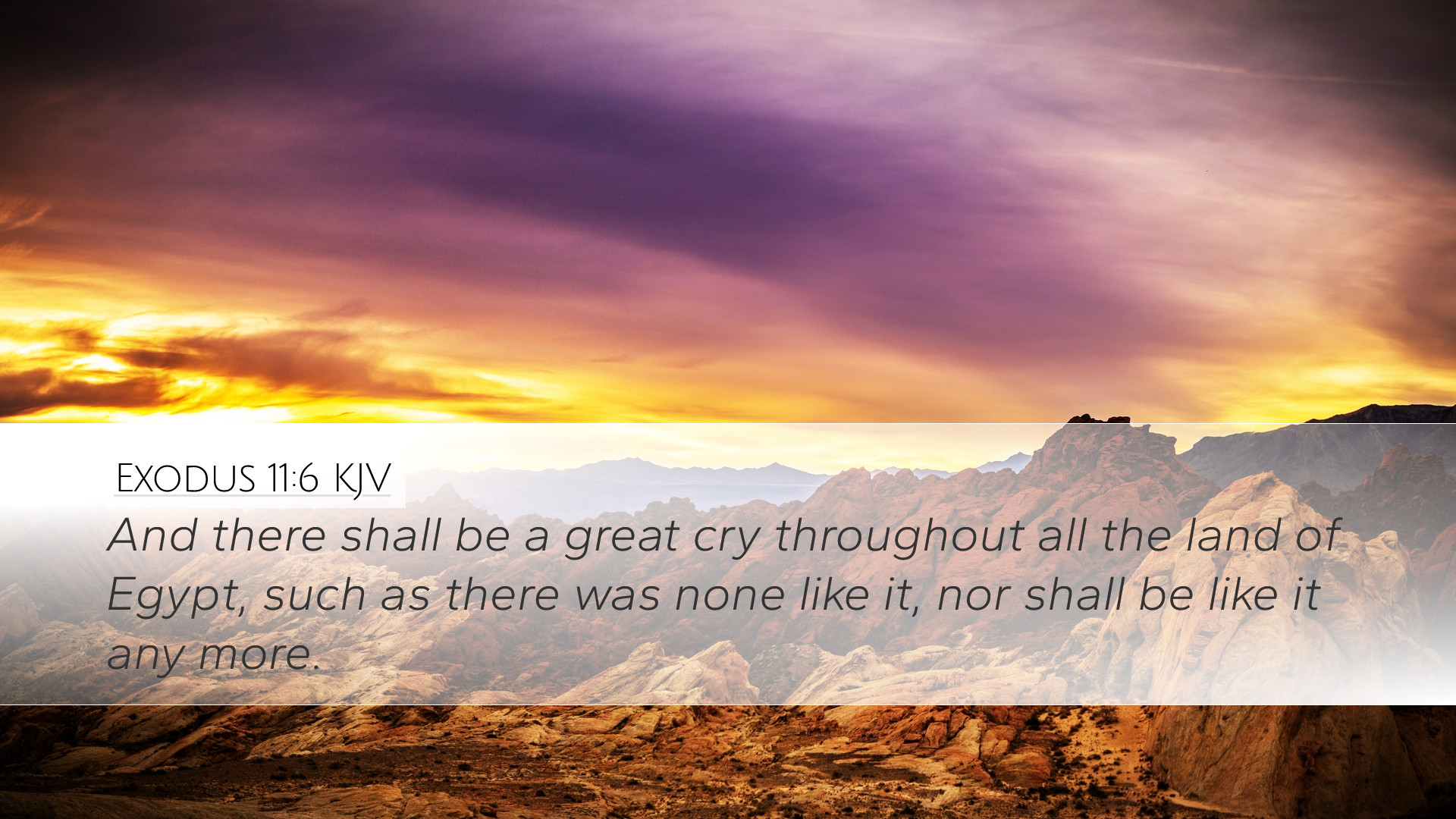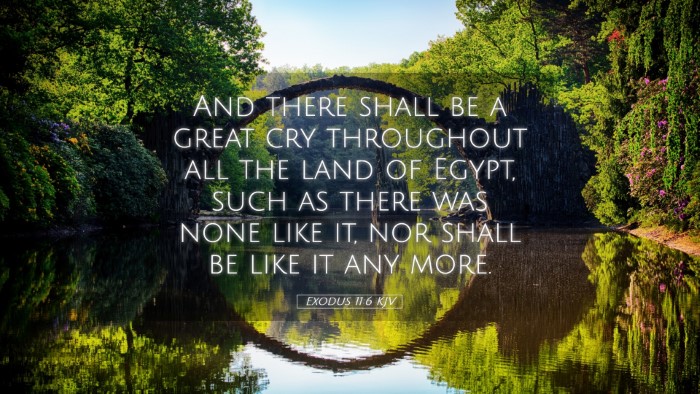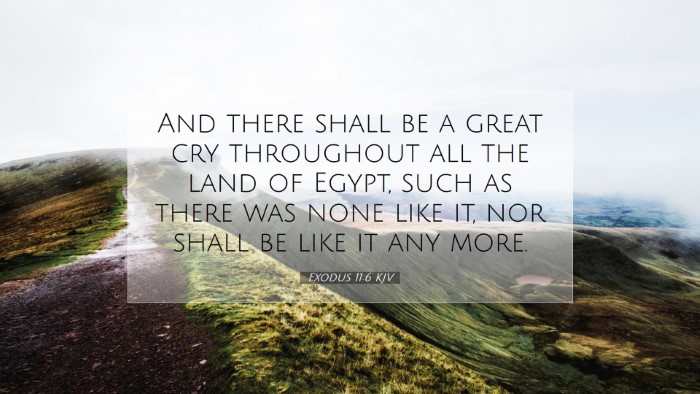Commentary on Exodus 11:6
Text of Exodus 11:6: "And there shall be a great cry throughout all the land of Egypt, such as there was none like it, nor shall be like it any more."
Introduction
This verse comes at a pivotal moment in the narrative of the Exodus, just before the final plague that God would unleash upon Egypt— the death of the firstborn. This critical juncture serves to underline God's sovereignty, the reality of judgment, and the fulfillment of His promises to Israel. The commentaries by Matthew Henry, Albert Barnes, and Adam Clarke provide valuable insights into its implications.
Matthew Henry's Commentary
Matthew Henry elaborates on the intense emotional and spiritual impact this cry represents. It is not just a physical lament for loss; it symbolizes the culmination of God’s judgments upon Egypt and their gods. Henry notes that Egypt had been warned so that the seriousness of God’s judgment would be recognized:
- The Significance of a Great Cry: Henry emphasizes that this cry signifies despair and the depth of mourning that follows judgment. It was unprecedented, indicating that the degree of sorrow would surpass any previous experience.
- God's Justice: The mention of the cry serves to affirm God's justice for Israel's prolonged suffering under slavery. It underscores the certainty of divine providence and retribution for oppression.
- Contrast with Israel: The cry in Egypt starkly contrasts with the peace and safety that would envelop the Israelites, highlighting God's protection over His chosen people.
Albert Barnes' Commentary
Albert Barnes provides a more exegetical approach in understanding the implications of God's declaration. His remarks draw on the themes of divine authority and historical context:
- Cultural Context: Barnes discusses the history of Egyptian mourning practices, noting that the depth of this cry corresponds to unprecedented national grief that would resonate throughout families and communities.
- Theological Implications: This verse affirms not merely the power of the event but God's active role in history as He executes judgment. God’s intervention is not only punitive; it is also redemptive for His people.
- Precedent of Plagues: He analyzes each previous plague's impact on Egyptian society, concluding that this final plague serves as a climax of divine confrontation that dismantles the worldview of Egyptian mythology.
Adam Clarke's Commentary
Adam Clarke offers a critical examination of the text with a focus on the prophetic nature of Moses' declaration:
- Prophetic Fulfillment: Clarke posits that Moses, as a prophet, was foretelling an event that would reverberate throughout history—no similar event for Egyptians would follow. The emphasis here is on the finality of God’s judgment.
- Illustration of Divine Sovereignty: Clarke interprets the cry not merely as a sorrowful sound but as an expression of divine authority. God establishes a clear boundary between His people and that of their oppressors.
- Hope for Israel: Amidst the calamity promised to Egypt, Clarke reminds readers of the hope embedded in the establishment of a new covenant with Israel, setting the stage for liberation and the eventual journey to the Promised Land.
Theological Reflections
As we meditate on Exodus 11:6, several theological reflections arise that are pertinent to modern understanding:
- The Nature of Judgment: This verse encapsulates the seriousness of sin and the resultant judgment that befalls those who oppose God. It serves as a cautionary reminder that divine judgment is inevitable and often visceral.
- God's Sovereignty and Control: Readers are reminded that God reigns supreme over nations and leaders. His decisions are not random but reflect a purposeful plan for redemption and justice.
- Redemptive History: The event foreshadows the ultimate redemptive work of Christ. Just as the Israelites were delivered from bondage, believers today are offered liberation from the bondage of sin through Christ's sacrifice.
Conclusion
Exodus 11:6 serves as a profound reminder of God's active role in history, His ultimate authority over creation, and His desire for justice, not just for His people but for the entirety of humanity. Pastors, theologians, and Bible scholars are encouraged to view this verse within the grand narrative of Scripture, recognizing it as a vital piece of the mosaic that reflects God's unfolding redemptive plan throughout the ages. The implications for worship, teaching, and pastoral care continue to resonate, providing a foundation for understanding human suffering, divine justice, and unmatched grace.


